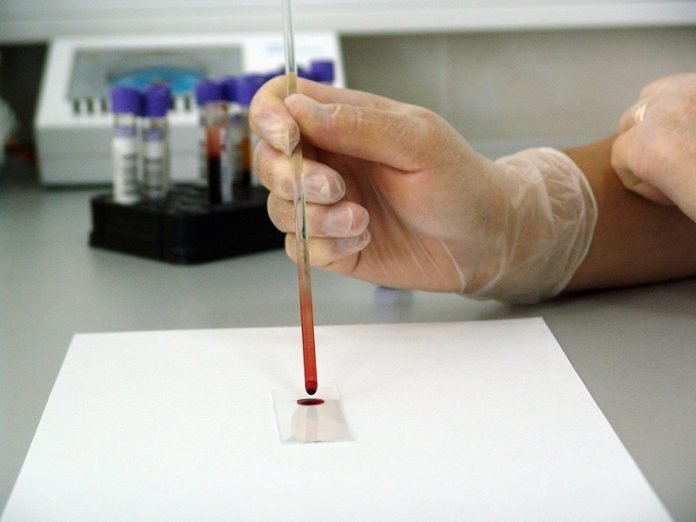
In a new study, researchers found an artificial intelligence tool has a 77% accuracy diagnosis of posttraumatic stress disorder (PTSD) in male combat veterans.
The AI tool analyzes 28 physical and molecular measures, all but one from blood samples. The measures included genomic, metabolic, and protein biomarkers.
The research was led by NYU School of Medicine, Harvard John A. Paulson School of Engineering and Applied Sciences, and the U.S. Army Medical Research and Development Command.
People with PTSD experience strong, persistent distress when reminded of a triggering, traumatic event.
According to a World Health Organization survey, more than 70% of adults worldwide have experienced a traumatic event at some point in their lives, although not all develop the condition.
There are currently no FDA-approved blood tests, for instance, for depression or bipolar disorder.
In the study, the team examined 83 male, warzone-exposed veterans of the Iraq and Afghanistan conflicts with confirmed PTSD, and another 82 warzone-deployed veterans serving as healthy controls, were recruited from the Manhattan, Bronx and Brooklyn Veterans Affairs (VA) Medical Centers.
The researchers tested nearly one million features with current genomic and other molecular tests and narrowed them to 28 markers.
By measuring a large number of unbiased quantities, the team sought to determine which of them were associated with an accurate PTSD symptom diagnosis.
Using a combination of statistical techniques, the study authors narrowed the best measures from a million to 343 to 77, and then finally to 28, with the final group outperforming the larger groups in prediction accuracy.
Some of this winnowing was accomplished using machine learning, mathematical models trained with data to find patterns.
The team then applied their “PTSD blood test” to an independent group of veterans to see how well their new tool matched the diagnoses made previously using standard clinical questionnaires like the Clinician Administered PTSD Scale (CAPS).
This comparison yielded the 77% accuracy figure.
The new study embodies a longstanding goal in the field of psychiatry: to shift mental health toward standards like those used in cardiology or cancer, for instance, in which lab tests enable accurate diagnoses based on physical measures (biomarkers) instead of on self-reporting or interviews with inherent biases.
The team says the Department of Health Affairs within the Department of Defense is considering this approach as a potential screening tool that could identify service members, before and after deployment, with features of unresolved post-traumatic stress.
Those identified would be referred for their specific issues (sleep disruption, anger management, etc.), which is available at most military bases.
This is the first blood-based biomarker panel for diagnosis of warzone-related PTSD.
If successful, this test would be one of the first of its kind—an objective blood test for a major psychiatric disorder.
The lead author of the study is Charles R. Marmar, MD, the Lucius N. Littauer Professor.
The study is published in the journal Molecular Psychiatry.
Copyright © 2019 Knowridge Science Report. All rights reserved.



